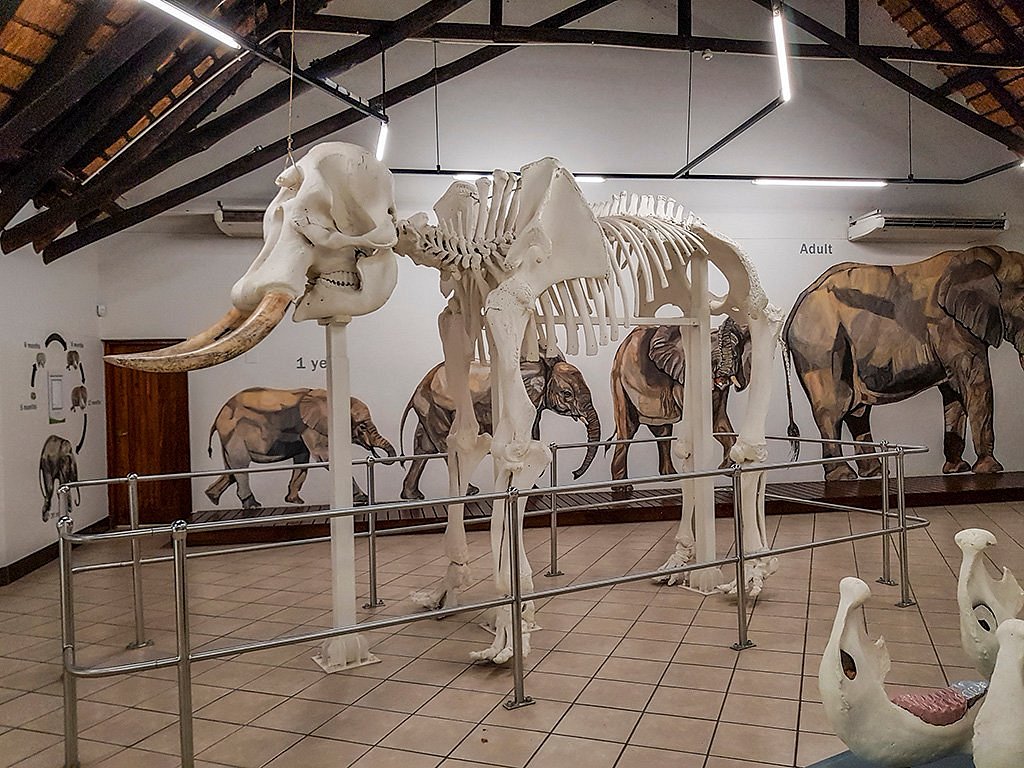Open Time 6:00 AM – 6:00 PM
Natural History Museums
Located on the banks of the Letaba River in Kruger National Park, Letaba Rest Camp offers a picturesque setting where one can easily envision elephants roaming beneath the canopy of sycamore fig, Natal mahogany, apple leaf, and sausage trees. The name “Letaba,” meaning ‘river of sand,’ aptly describes the riverbed, an ideal spot for wildlife sightings, particularly elephants who thrive in this area. It is here that the Letaba Elephant Hall finds its home, serving as an educational elephant museum.
The Letaba Elephant Hall is a treasure trove of information about elephants, covering their evolutionary history, biology, behavior, ecology, and most intriguingly, the ivory of eight of Kruger’s most legendary tuskers. These tuskers represent the largest elephant bulls that roamed Kruger National Park from the 1930s to the 1980s, famously known as the ‘Magnificent Seven.’ Among these awe-inspiring creatures were Kzombo, Joao, Kambaku, Mafunyane, Nlulamithi, Shawu, and Shingwedzi.






These majestic elephants bore tusks exceeding 50 kilograms in weight, with Joao’s single tusk being the heaviest at a staggering 70 kilograms, though it, unfortunately, broke off as he aged and was never recovered, making it the only absent set in the Elephant Hall. Shawu, on the other hand, boasted the longest tusk, measuring 3 meters and 17 centimeters, and weighing a robust 52 kilograms. Notably, these great tuskers left a lasting legacy, as their genes continue to be preserved within the Kruger, a vital sanctuary as Africa’s bull elephants have faced significant hunting pressures elsewhere.
Letaba Rest Camp, situated in the northern reaches of Kruger National Park, is easily accessible, being just 50 kilometers from the Phalaborwa gate. It warmly welcomes visitors every day of the year, ensuring that the Letaba Elephant Hall remains an enlightening destination for wildlife enthusiasts and those eager to delve into the fascinating world of elephants.






